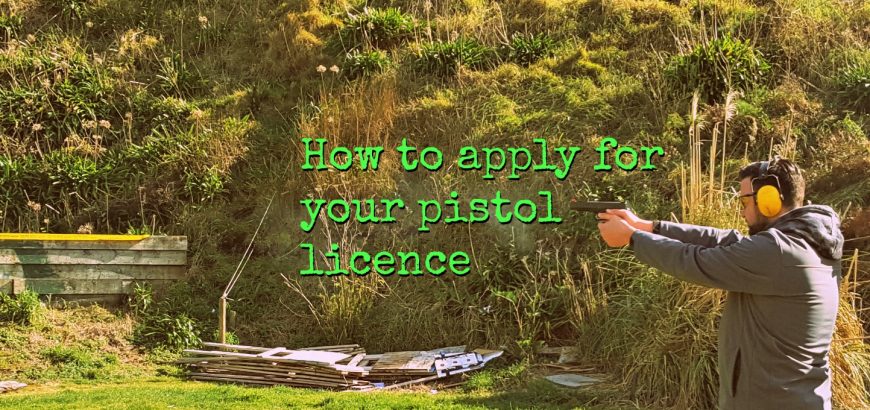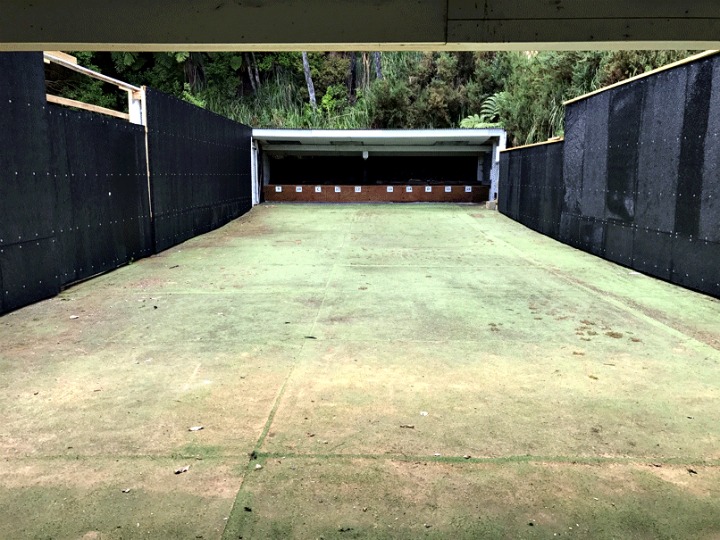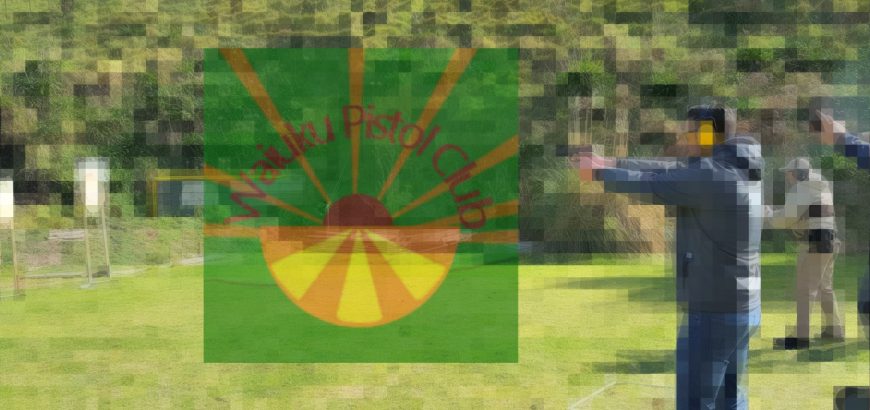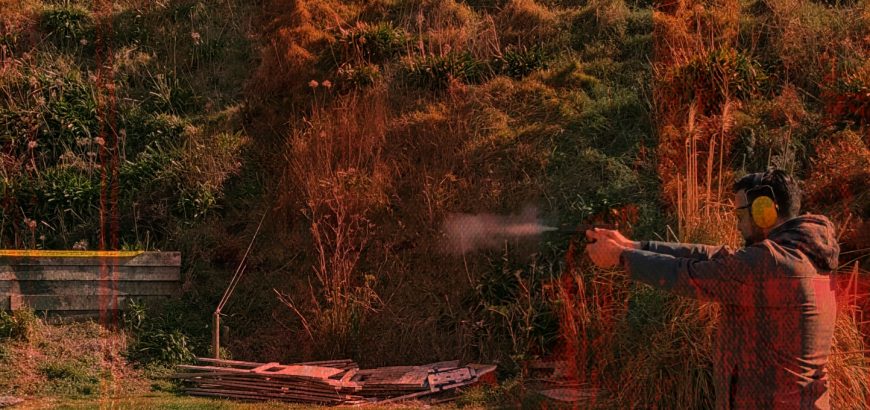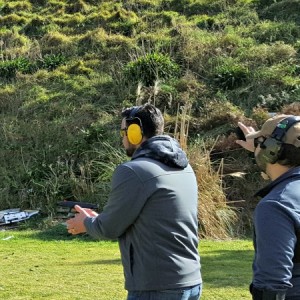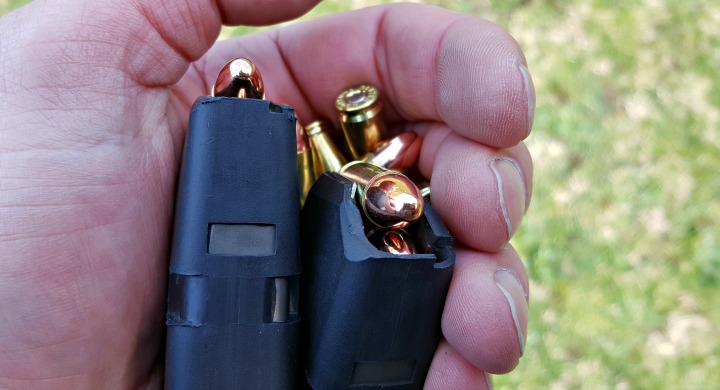I often talk to friends or people at the range and shooting events about pistol shooting, it seems many people who are already interested in shooting activities are keen to try pistol, but don’t know how or where to start. I know that information can be hard to come by at times, and often it seems like people are deliberately making it difficult. For this reason I thought I would give a bit of a shakedown of the current process here in New Zealand.
I will start by pointing out what I would hope is already generally understood information; Firstly It is illegal to shoot a pistol anywhere in New Zealand other than a pistol range which has been approved by the police for this purpose. You must have a specific endorsement on your firearms licence in order to possess a pistol (B Endorsement), and you may only transport it from your pre-approved security (safe) to the pistol range and back again (with the exception of to a gunsmith / store).
It is possible to attend a training course at a pistol range in New Zealand without first having a firearms licence (under strict supervision), but many clubs require that you have at least begun the process towards getting your licence. It is also a police requirement that, after 3 visits as a visitor, you must become a financial member of the club in order to progress your training.
Basic firearms licence
If you don’t have a basic sporting (A Category) licence, you will need to follow the following steps to get one:
- Attend a firearms safety course (generally one or two evenings)
- Sit a test on the information you have learned at the course (And pass of course)
- Pay an application fee (paid at an NZ post shop)
- Complete an application form from your local arms office (This application will require you to provide details of at least two character references)
- Install security measures such as a safe / strong room
- A police vetting officer will then visit you and your chosen character referees to discuss the reasons you would like to own firearms, ensure you are a person of good character, and check your security measures are appropriate
- If all goes well, you should receive your licence in the mail.
Once you have your licence, endorsements such as the “B” endorsement for pistol shooting can be added to your licence. Or you can apply for endorsements at the same time as you apply for your licence.
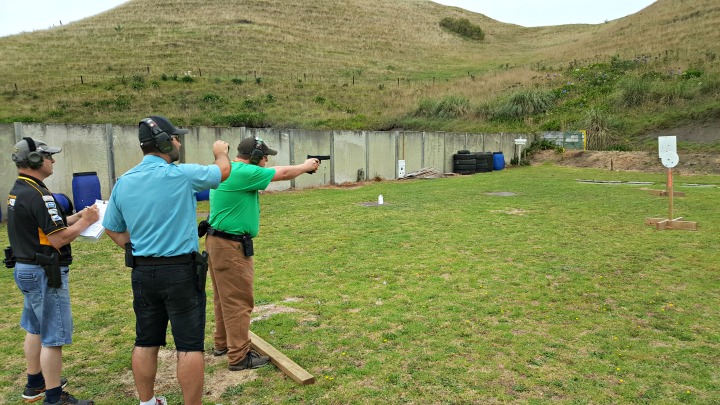
Applying for your B Endorsement
In order to apply for your “B” Endorsement you will need to follow the steps listed below:
- Join a pistol club, attend and complete their training programme (which should comprise of at least 12 days supervised training and lessons)
- Join Pistol New Zealand
- Complete a club range officer examination
- Complete a 6 month probation period with the club
- Apply to the club to get permission to apply for your endorsement (the club must deem you as a safe and competent shooter)
- Visit your Arms officer and get a form (POL67F), or download from the police website (you will need to get it witnessed by a police officer though)
- Provide your POL67F to your club who will complete their section and send it to Pistol NZ
- Pistol NZ will then complete their section and forward it onto the arms office [Editor’s Note: I am in the process of applying for my pistol licence, and the AO suggested that PNZ might mail the form back to me, and I could electronically submit back to the AO (i.e. via scan/email)]
- You will also need to pay an application fee, again via NZ Post
- You should then expect a visit from a police vetting officer to discuss the reasons why you would like to shoot pistols, inspect your security (you must have a “B” endorsed safe, not your basic “A cat” safe as there are much more stringent measures set on safes for endorsed firearms which can be found on the police website)
- The vetting officer will also contact at least two referees again. Generally these referees will be people who have a reasonable knowledge and understanding of your shooting activities, rather than just character references
- All going well you should then receive your new licence with relevant endorsements in the mail
Once you have your endorsed licence you may begin looking to purchase a pistol. Hopefully during your training period you will have had the opportunity to shoot a variety of pistols and types of events, and you may have established an understanding of what you want.
Acquiring a pistol
Once you have decided on a pistol and a place you are purchasing it from, you need to talk with your club and get an Application for a Permit to Procure “Pinky” form which will be signed off by a member of the club executive, authorising you to apply for a Permit to Procure. You take this form with you to your Arms Office and you will be issued two copies of a POL67C Permit to Procure form.
Once you have this Permit to Procure you take it with you to the person or store you are procuring the pistol from, and they will complete their section on the forms. You then take the completed forms and the pistol to your Arms Office who will inspect the pistol to ensure it is the same as the one originally applied for. They will keep a copy of the form so it can be entered in their records and you will be allowed to take the pistol, and your copy of the permit for your records.
Why is it so much effort?
I know that in reading this, it sounds like a long-winded process. To be honest, it is. I would estimate it taking about a year (or longer depending on circumstances) to fully complete the process. There is a reasonable amount of start-up and ongoing costs associated with owning pistols to be aware of (Application fees, Pistol Club joining fees, annual Pistol Club fees, Pistol NZ Fees, not to mention cost of firearms, ammo and equipment). However, after completing the process, I can understand why it is set up this way.
Pistol shooting is great fun, and you will meet some great people, but safety is key (things have the potential to go pear-shaped very quickly with pistols and their very short barrels). By completing the whole process, it ensures that only those people who are very motivated and keen, as well as competent and safe have access to these endorsed firearms. You don’t want to be competing in a match at your range with guys you don’t feel safe around. The knowledge that everyone you are shooting with has completed the above process does provide that assurance of competence and safety.
If you’re interested in shooting pistols, I would highly recommend contacting your local pistol club and enrolling in their next training programme. Visit the Pistol NZ website for a directory of pistol clubs throughout NZ.
